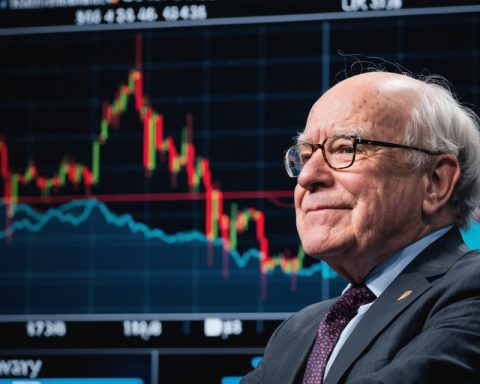Indian tech trailblazer Swiggy is gearing up for a monumental public offering, but it’s had to make a notable concession. The food delivery titan has adjusted its IPO valuation to $11.3 billion, a considerable markdown from its ambitious initial target of $15 billion, according to insider reports.
Investment Giants Step In
Attracting significant interest, global heavyweights such as BlackRock and Canada Pension Plan Investment Board are committing funds to Swiggy’s $1.4 billion public offering, positioned as the country’s second-largest this year. This move marks a significant moment for Swiggy, even amid a jittery market environment.
Market Trends Influence Strategy
India’s stock market is experiencing a challenging period, with the benchmark Nifty 50 index seeing a prolonged decline. This downturn, coupled with Hyundai India’s recent underwhelming stock debut, influenced Swiggy’s decision to reassess its valuation.
Strategic Valuation Cut
With backing from SoftBank and Prosus, Swiggy’s decision to lower its IPO valuation stems from a strategic aim to sidestep a lackluster reception. This preemptive measure takes into account ongoing global uncertainties, including reactions to the upcoming U.S. presidential election.
A Race Against Rivals
Swiggy, locked in fierce competition with Zomato in the bustling Indian food delivery market, is also making strides in “quick-commerce,” promising ultra-fast delivery services. Despite recent challenges, the broader IPO landscape in India has been vibrant, with a substantial $12.57 billion raised this year alone. This suggests a resilient market eager for exciting new opportunities, as companies boldly step into the public spotlight.
Why India’s Hottest Start-Up Settled for a Lower IPO Price: An In-Depth Analysis
Swiggy, India’s premier food delivery service, has made headlines with its decision to reduce its IPO valuation to $11.3 billion from the initially planned $15 billion. Several critical factors have influenced this strategic move, reflecting both the challenges and opportunities facing tech start-ups in India today.
Key Questions and Their Answers
1. Why Did Swiggy Opt for a Lower Valuation?
Swiggy’s decision to lower its IPO price is mainly influenced by the current volatility in global and domestic markets. Given India’s benchmark Nifty 50 index’s decline, and recent tepid market debuts like that of Hyundai India, Swiggy aimed to align its valuation with current market sentiments to ensure a successful IPO launch.
2. What Role Do Economic Factors Play?
Economic uncertainties, such as inflation and global geopolitical tensions, are notable influences on Swiggy’s valuation decision. These factors contribute to investor caution, prompting companies to offer more enticing initial valuations to gain traction.
3. How Big is the Competition?
Swiggy faces intense competition from Zomato, another major player in the Indian food delivery sector. This rivalry compels Swiggy to constantly innovate and expand its service offerings, such as venturing into the “quick-commerce” segment, to maintain its market share.
Challenges and Controversies
Swiggy’s IPO journey isn’t without hurdles. The fluctuating stock market and emerging challenges in the quick-commerce industry present significant risks. Moreover, controversies surrounding data privacy and service quality in the gig economy provide additional layers of complexity.
Advantages of the Valuation Adjustment
– Market Alignment: By revising its valuation, Swiggy positions itself more strategically among investors wary of overhyped IPOs.
– Increased Investor Confidence: A realistic valuation can build confidence among institutional investors, reducing the risk of post-IPO stock price plunges.
Disadvantages of the Valuation Adjustment
– Perception of Reduced Growth: A lowered valuation may suggest to some investors that Swiggy’s growth potential is not as robust as previously thought.
– Impact on Employee Stock Options: Employees holding stock options or shares might face reduced financial benefits if the company’s public valuation is seen as curtailed.
In conclusion, while Swiggy’s decreased IPO valuation is a tactical decision reflective of the current market landscape, it also illustrates the broader challenges and opportunities within India’s burgeoning tech sector.
Suggested Links










